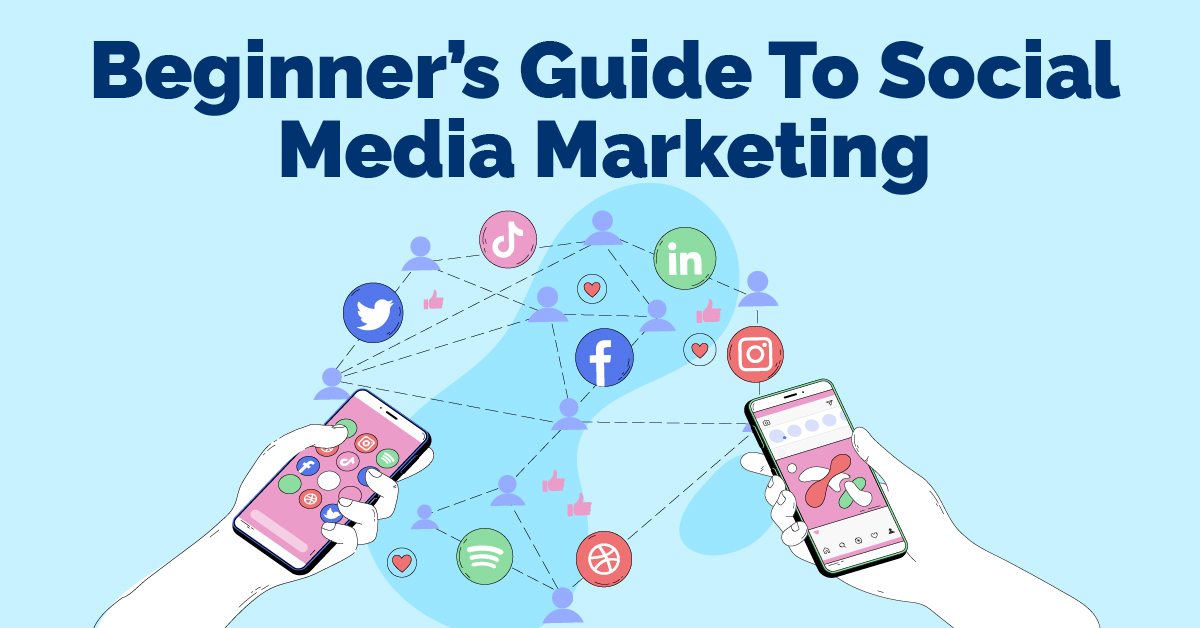Social media has become an integral part of our lives, and businesses are leveraging its power to reach and engage with their target audience. This guide will provide you with a comprehensive overview of social media marketing, including strategies and best practices to help you build a strong online presence and achieve your marketing goals.

1. Set Clear Objectives:
a. Define Your Goals: Determine what you want to achieve through social media marketing, whether it’s increasing brand awareness, driving website traffic, generating leads, or fostering customer loyalty.
b. Specific and Measurable: Ensure your objectives are specific, measurable, achievable, relevant, and time-bound (SMART).
2. Identify Your Target Audience:
a. Research and Segmentation: Conduct market research to understand your target audience’s demographics, interests, behaviors, and social media usage patterns.
b. Buyer Personas: Create buyer personas that represent your ideal customers, which will guide your content creation and targeting strategies.
3. Select the Right Social Media Platforms:
a. Analyze Platform Demographics: Understand the demographics and user preferences of different social media platforms to determine which ones align best with your target audience.
b. Focus on Key Platforms: Start with a few key platforms where your audience is most active and engage effectively.
4. Develop a Content Strategy:
a. Consistency and Branding: Maintain a consistent brand voice and visual identity across your social media profiles.
b. Content Planning: Create a content calendar to ensure a steady stream of valuable and engaging content.
c. Mix of Content Types: Incorporate a variety of content types, such as informative articles, videos, infographics, user-generated content, and behind-the-scenes glimpses.
5. Engage and Build Relationships:
a. Active Engagement: Regularly monitor your social media platforms for comments, messages, and mentions, and respond promptly and authentically.
b. Community Building: Foster a sense of community by actively engaging with your audience, asking questions, and encouraging discussions.
c. Influencer Collaborations: Partner with influencers or brand advocates to amplify your reach and leverage their influence.
6. Utilize Paid Advertising:
a. Targeted Advertising: Use social media advertising platforms to reach a highly targeted audience based on demographics, interests, behaviors, and custom audience lists.
b. Ad Formats: Experiment with different ad formats, such as sponsored posts, carousel ads, video ads, and influencer collaborations.
7. Monitor and Measure Results:
a. Key Metrics: Track relevant social media metrics like engagement rate, reach, impressions, click-through rate, conversions, and sentiment analysis.
b. Analytics Tools: Utilize analytics tools provided by social media platforms or use third-party tools like Google Analytics or Sprout Social to gain insights into your performance.
c. A/B Testing: Continuously experiment and test different strategies, content formats, and ad campaigns to optimize your results.
8. Stay Up-to-Date and Adapt:
a. Social Media Trends: Keep an eye on emerging trends, new features, and algorithm updates on social media platforms to stay ahead of the curve.
b. Industry Insights: Follow industry thought leaders, attend webinars, and participate in social media marketing communities to stay informed about the latest best practices and strategies.
Conclusion:
Social media marketing presents immense opportunities for businesses to connect, engage, and grow their audience. By setting clear objectives, understanding your target audience, selecting the right platforms, and implementing a well-defined content strategy, you can leverage social media to achieve your marketing goals. Engage with your audience, utilize paid advertising effectively, monitor your performance, and adapt to changes in the social media landscape. Remember to stay authentic, provide value, and build genuine relationships with your audience. With consistent effort, creativity, and an understanding of your target market, social media can become a powerful marketing tool that drives business success.